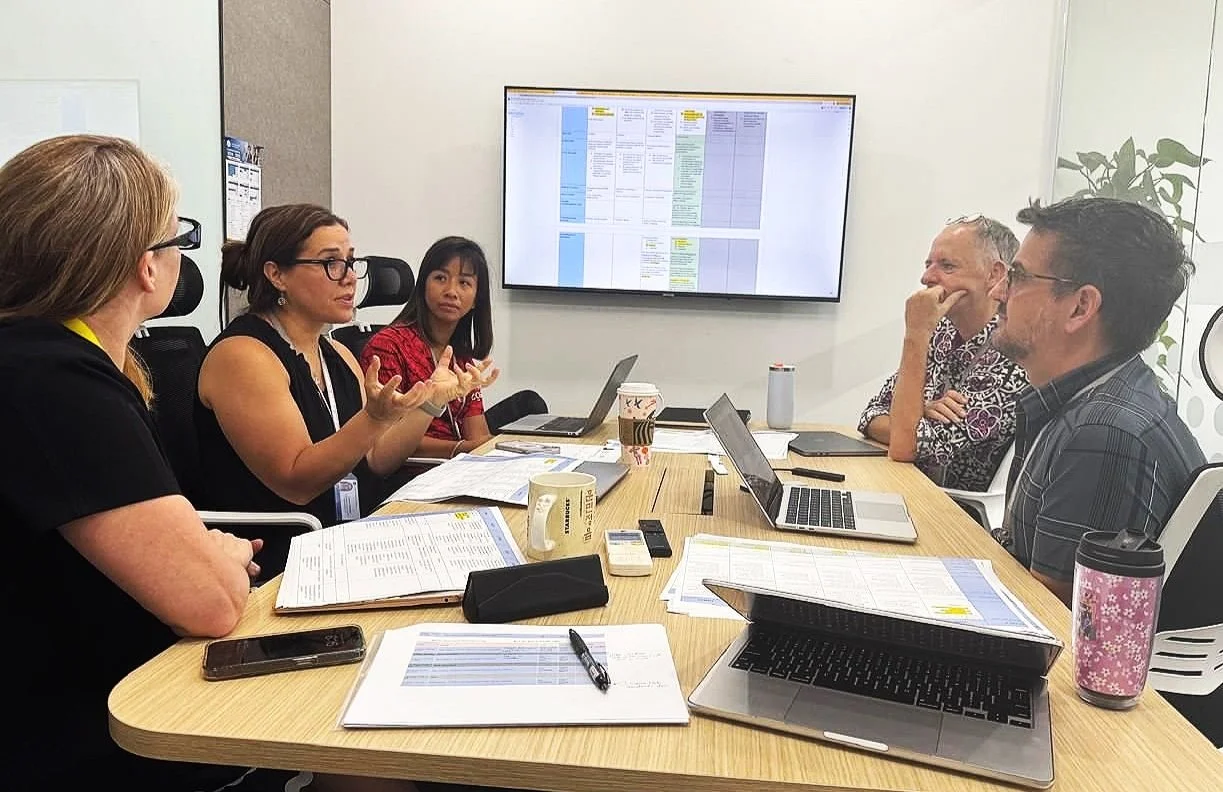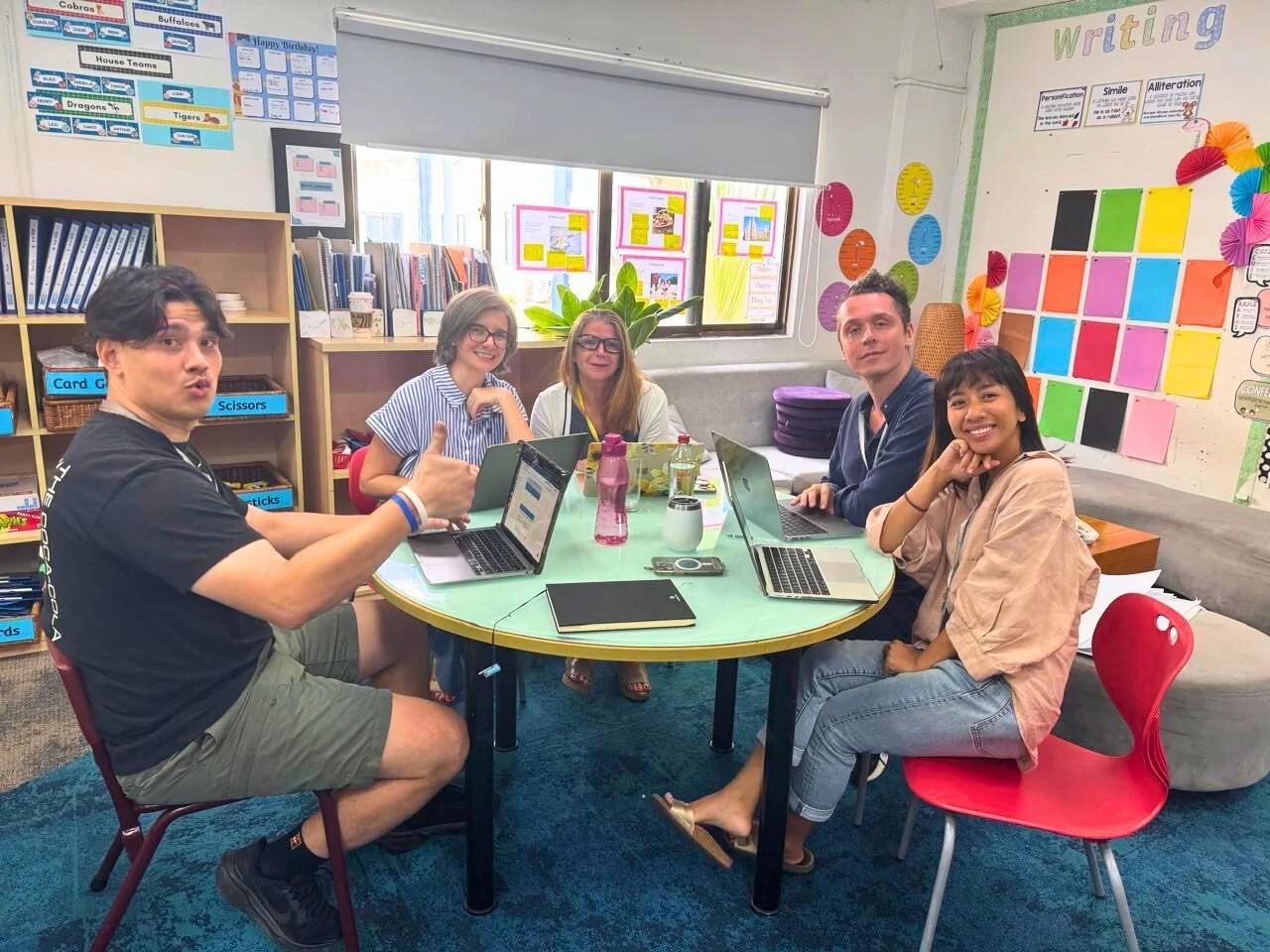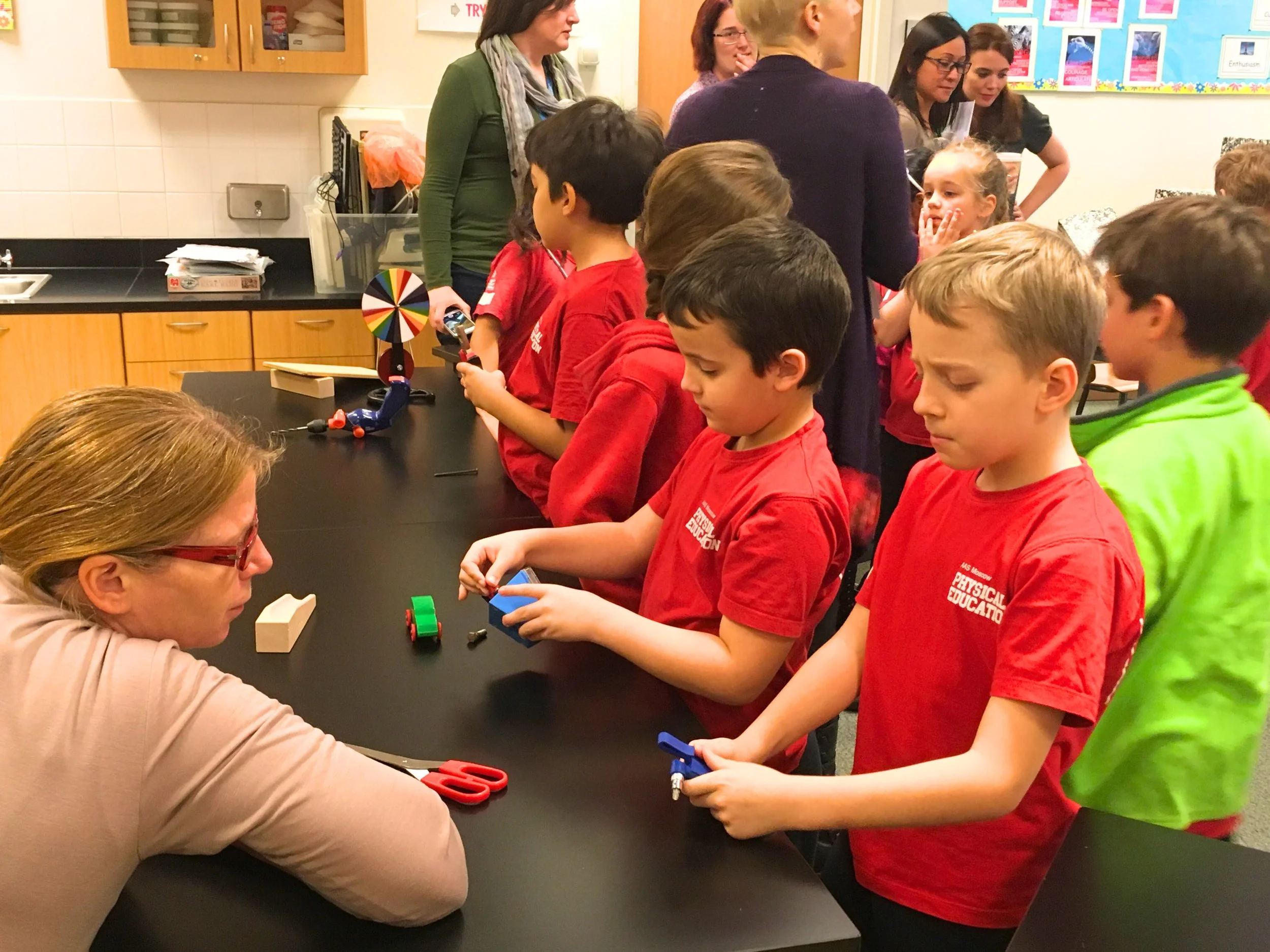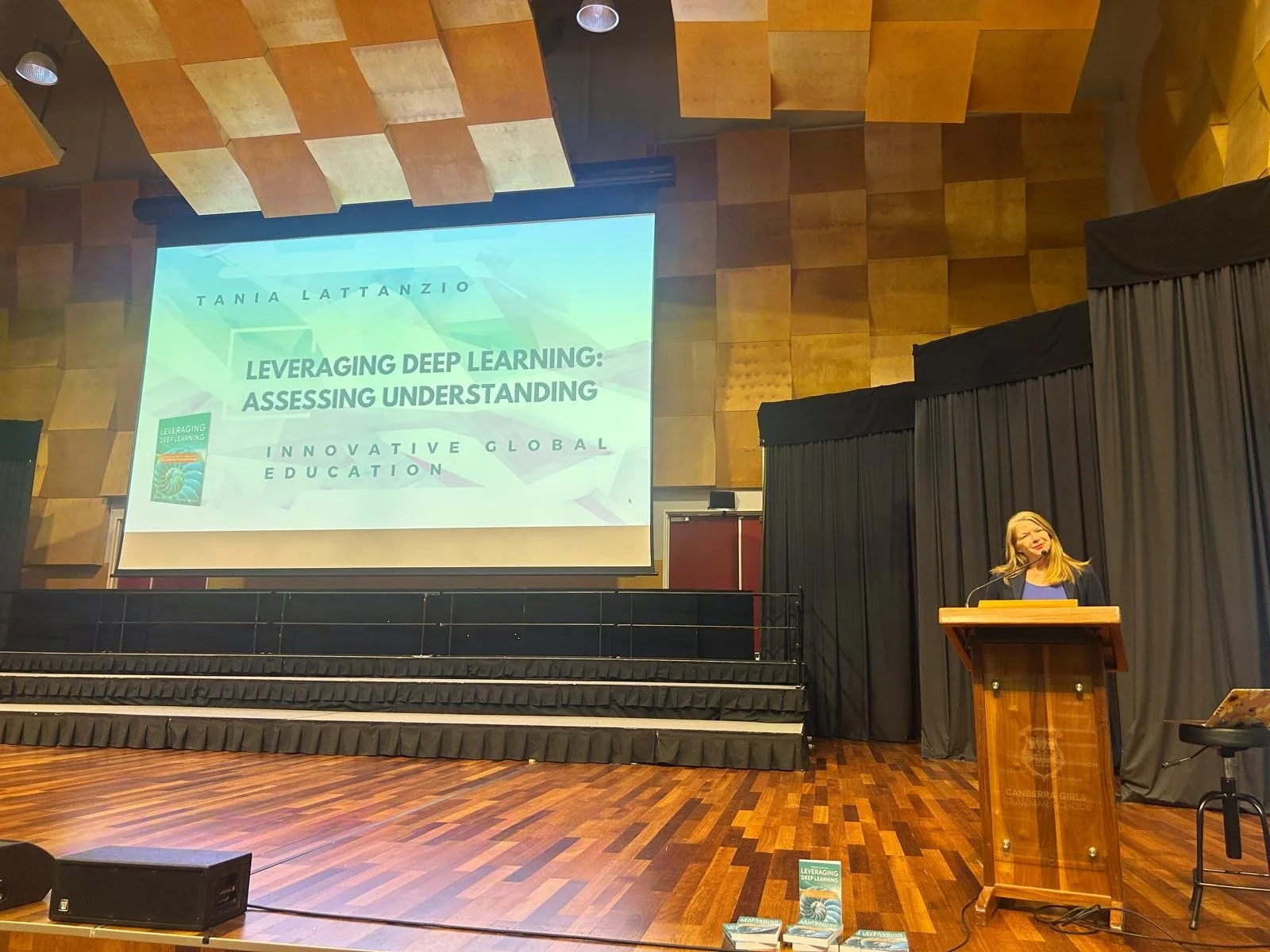Reimagining and Conceptualising the Curriculum
“When concepts are emphasised over content, there is no limit to the range of topics that students may investigate through a conceptual lens.”
Innovative Global Education (IGE) partners with schools to reimagine curriculum through a conceptual lens ensuring learning is purposeful, transferable, and deeply engaging. When curriculum content is framed conceptually, facts and skills are not discarded but thoughtfully layered within a more meaningful context. Students are invited into learning that is significant, future-oriented, and rooted in curiosity.
Image: Collaborating with educators at BBIS Berlin Brandenburg International School to develop conceptual units of inquiry and ensure curriculum coverage, and vertical and horizontal articulation.
IGE supports schools in designing, reviewing, and refining curriculum so it becomes conceptually rich and aligned with purpose. Whether using existing national, state, or international standards, or co-developing them with schools, IGE helps structure curriculum around big ideas that promote understanding and student agency.
Importantly, transitioning to a conceptual curriculum does not mean starting from scratch. Most schools already have valuable curriculum content that can be reframed conceptually.
Image: Programme of Inquiry development with teachers at ISHCMC (International School Ho Chi Minh City), Vietnam. Using curriculum standards and developing units that are conceptually focussed and transdisciplinary.
“Making the transition to a conceptual curriculum does not require you to discard your current curriculum. It is likely that your existing units have the potential to be taught conceptually once you have the tools to do so.”
By shifting the focus from content coverage to conceptual understanding, schools open new opportunities for student-led inquiry, deeper engagement, and greater transfer of learning. Research supports this approach:
“Organising information into a conceptual framework allows for greater transfer; that is, it allows the student to apply what was learned in new situations and to learn related information more quickly.”
— Bransford, Brown & Cocking (2000), How People Learn
How IGE Collaborates with Schools
IGE partners with schools using practical tools and research-informed models to guide conceptual curriculum development. This includes:
Using Existing or Developing New Standards: IGE aligns curriculum with school, national, or international standards—or supports schools in developing their own—to ensure rigour and relevance while shifting toward a conceptual framework.
Designing Conceptual Curriculum Frameworks: IGE helps teams organise curriculum around big ideas that foster deep understanding and long-term transfer.
Developing Integrated and Transdisciplinary Units: IGE supports the design of learning experiences that authentically connect subject areas through shared conceptual lenses.
Areas of Focus
-
IGE supports schools to integrate curriculum across subject areas, creating rich, transdisciplinary units of learning grounded in big ideas. These units allow students to explore multiple perspectives while building conceptual understanding.
-
IGE collaborates with specialist teachers (e.g., Music, PE, Art, Languages, Drama, Dance, Religion) to organise curriculum content into meaningful conceptual frameworks. This approach brings coherence and relevance to specialist teaching and learning.
-
IGE works with middle years teams to embed content and skills into conceptually organised units that foster inquiry, relevance, and transfer.
-
IGE supports the development of play-based, conceptually driven learning experiences that are grounded in young children’s theories, questions, and emerging understandings.
-
IGE brings extensive experience supporting IB schools:
PYP: Supporting the creation, review, and refinement of Programmes of Inquiry to ensure conceptual coherence and IB alignment.
MYP: Collaborating with teams to design conceptual units, overviews, integrated units and assessments aligned with the IBMYP framework.
IGE Curriculum Development Services
Conceptual Curriculum Framework Design
IB PYP Programme of Inquiry Development
Conceptual Units for Single Subject Areas
Integrated and Transdisciplinary Curriculum Design
IBMYP Conceptual Overviews and Unit Development
Middle Years Conceptual Curriculum (Grades 6–10)
Early Years Conceptual Frameworks
The beginnings of developing a conceptual curriculum, ensuring articulation.
"Tania’s expertise elevated our programme of inquiry, aligning it with a grounded curriculum that emphasizes standards and concepts, deepening student engagement and understanding."
Daniel Barker, PYP Coordinator
GET IN TOUCH
GET IN TOUCH
Inspiring Educators
•
Impacting Learners
•
Innovative Global Education
•
Inspiring Educators • Impacting Learners • Innovative Global Education •
See Other Services
Planning and Designing for Purposeful & Impactful Learning
IGE partners with educators across subjects and age groups to co-design learning experiences that are intentional, inquiry-driven, and grounded in deep conceptual understanding.
Focussed Collective Learning
Focussed collective learning is a coordinated approach where small teams collaborate to address shared educational goals.
Engage and Inspire: Transformative Learning Modules
IGE’s interactive workshops are designed to deepen understanding, ignite curiosity, and empower educators across all age groups and subject areas.
Partnering with Parents: Building Understanding and Connection
Our parent workshops are designed to inform, empower, and engage families and caregivers in today’s evolving educational landscape.
Mentoring and Coaching
We provide tailored mentoring and coaching for curriculum leaders and coordinators to support meaningful and sustainable pedagogical change.
Lab Site Facilitation: Bringing Theory to Life in Real Classrooms
Tania Lattanzio works alongside educators through lab site facilitation, a powerful model of professional learning that takes theory off the page and into the classroom.
Keynotes that Engage, Inspire, and Shift Thinking
Tania Lattanzio delivers dynamic keynotes that inspire educators to rethink learning through inquiry, assessment, conceptual understanding, and student agency.













